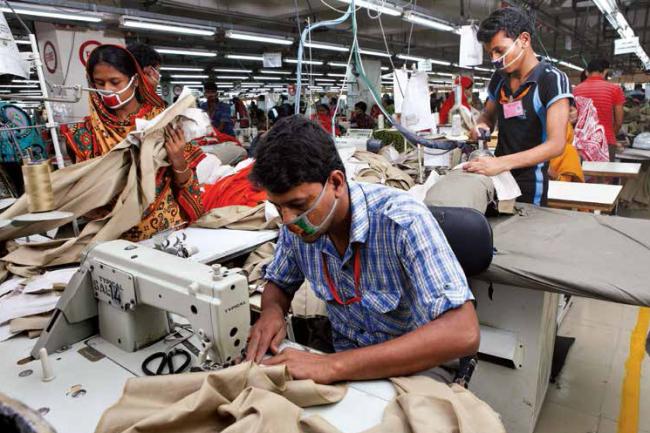
Global unemployment projected to rise over next two years, UN agency warns
“The significant slowdown in emerging economies coupled with a sharp decline in commodity prices is having a dramatic effect on the world of work,” UN International Labour Organization (ILO) Director-General Guy Ryder said of the latest report.
“Many working women and men are having to accept low paid jobs, both in emerging and developing economies and also, increasingly in developed countries,” he added, stressing that despite a drop in unemployment in some European Union countries and the United States, too many people are still jobless.
“We need to take urgent action to boost the number of decent work opportunities or we risk intensified social tensions,” said the ILO chief.
Final unemployment for 2015 is estimated to stand at 197.1 million, 27 million higher than the pre-crisis level of 2007, and in 2016 it is forecast to rise by about 2.3 million to 199.4 million, according to the ILO’s World Employment and Social Outlook – Trends 2016. An additional 1.1 million jobless will likely be added to the global tally in 2017.
The unemployment rate for developed economies decreased from 7.1 per cent in 2014 to 6.7 per cent in 2015, but in most cases these improvements were not enough to eliminate the jobs gap that emerged due to the global financial crisis.
Moreover, the employment outlook has now weakened in emerging and developing economies, notably in Brazil, China and oil-producing countries.
“The unstable economic environment associated with volatile capital flows, still dysfunctional financial markets and the shortage of global demand continue to affect enterprises and deter investment and job creation,” said Raymond Torres, Director of the ILO Research Department.
“In addition, policy-makers need to focus more on strengthening employment policies and tackling excessive inequalities. There is much evidence that well-designed labour market and social policies are essential for boosting economic growth and addressing the jobs crisis and almost eight years after the start of the global crisis, a strengthening of that policy approach is urgently needed,” he said.
Job quality remains a major challenge. While there has been a decrease in poverty rates, the decline in working poor in developing economies has slowed and vulnerable employment still accounts for over 46 per cent of the total, affecting nearly 1.5 billion people.
Vulnerable employment is particularly high in emerging and developing economies, hitting between half and three-quarters of the employed population, with peaks in Southern Asia at 74 per cent and sub-Saharan Africa at 70 per cent.
The report also shows that informal employment, as a percentage of non-agricultural employment, exceeds 50 per cent in half of the developing and emerging countries with comparable data. In one-third of these countries, it affects over 65 per cent of workers.
“The lack of decent jobs leads people to turn to informal employment, which is typically characterized by low productivity, low pay and no social protection. This needs to change,” Ryder said.
Stressing that responding urgently to the global jobs challenge is key to achieving the UN’s newly-adopted 2030 Agenda for Sustainable Development.
Photo: ILO Bangladesh/www.justearthnews.com
Support Our Journalism
We cannot do without you.. your contribution supports unbiased journalism
IBNS is not driven by any ism- not wokeism, not racism, not skewed secularism, not hyper right-wing or left liberal ideals, nor by any hardline religious beliefs or hyper nationalism. We want to serve you good old objective news, as they are. We do not judge or preach. We let people decide for themselves. We only try to present factual and well-sourced news.







